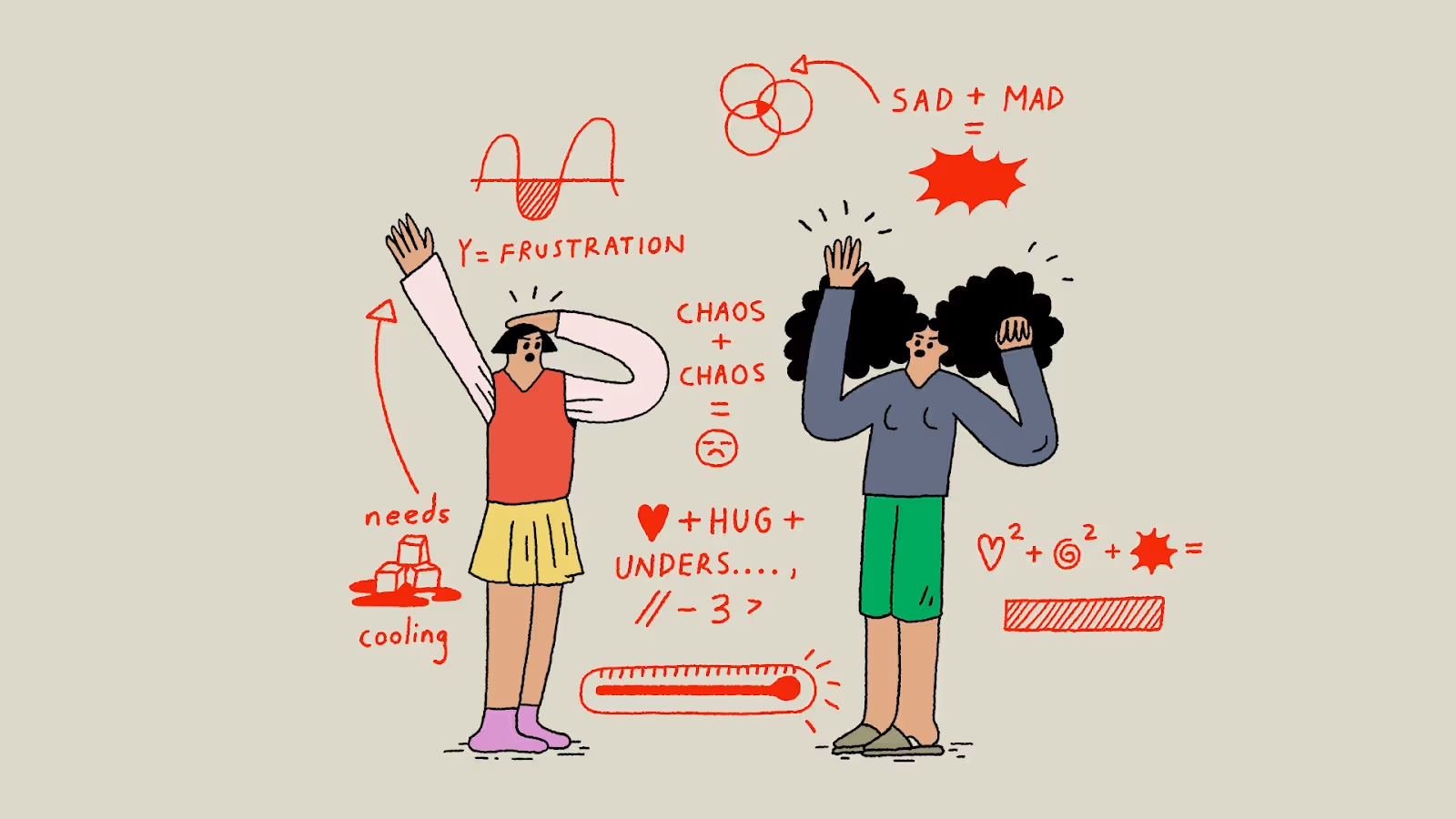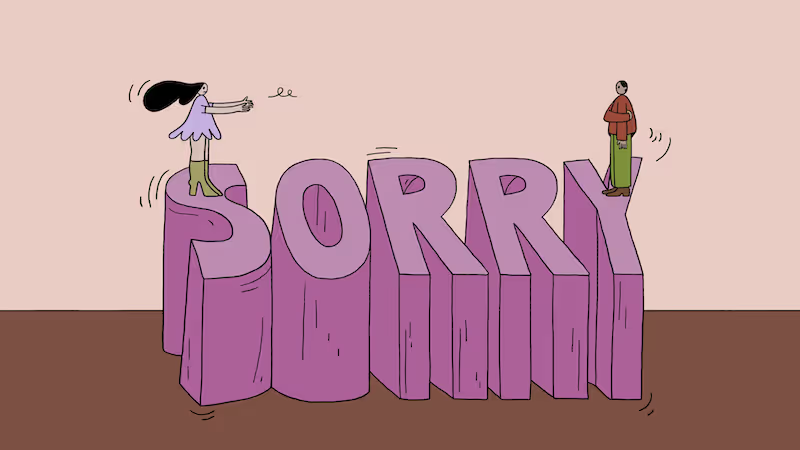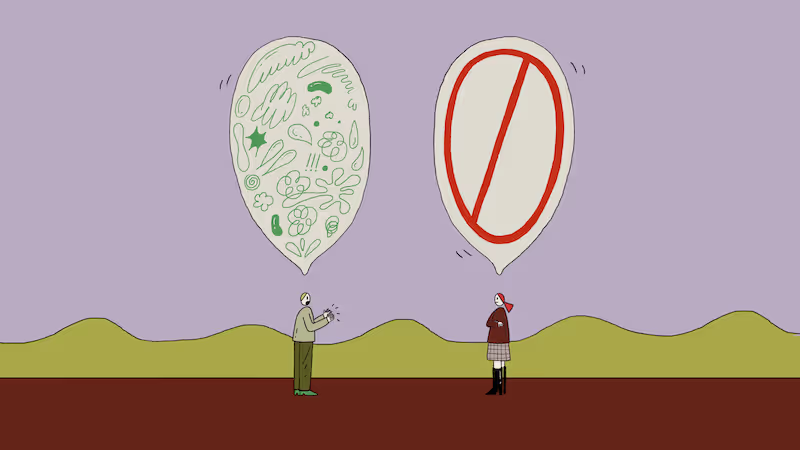Shall We Begin?
A dear friend texted me last week to let me know he was upset with me. We had made plans to talk the previous Sunday morning. When he called that day, I said I was still sleepy and asked if we could reschedule. What I didn’t know was that he had woken up early on the last day of his vacation to have this call. And it wasn’t the first time he had felt disregarded by me in this way. So he wrote me a letter.
It wasn’t only to get his feelings off his chest. He was sounding an alarm. Our relationship needs attention. By addressing the conflict head-on, he was showing how much our friendship matters to him. As I drafted my reply, I felt gratitude for his honesty, care, and communication. I told him so. I acknowledged my poor behavior and how it could come off as careless. I apologized and made a point of telling him that I, too, care about our friendship.
I sent off my reply and prepared for my next session (with a couple deep in a cycle of escalating fights). My friend sent back a loving, understanding message. We were once again aligned. Furthermore, our friendship was better for having gone through this. As the work day unfolded, however, I found myself stuck on a nagging thought: Could it really be that easy to resolve conflict?
No, of course not. My friend and I have an advantage: we’ve both been therapists for many decades and, in that time, we’ve seen every kind of fight you can imagine: the tension, the explosions, the ice-outs, the anger, the tears, the divorces, and the reconciliations. While neither of us has a magic formula for repair, we know the difference between conflict that is productive, useful, and restorative and conflict that is destructive, useless, and harmful.
Everywhere these days, it seems that people are having a harder time finding that difference for themselves. I often hear about situations in which one person, unable to air their grievances, has let a minor crack in a relationship metastasize into a web of fractures. The other person, inevitably, seems to be unaware of the impact of their behavior. Both are left flummoxed at how a misunderstanding or disagreement became a full-blown breakup or breakdown. But, for the life of them, neither really knows how it got so bad.
And it’s not just those with particularly close relationships. My single clients and friends tell me all the time how rare it is to address something they don’t like with a date. Rather than communicate, it’s become all too common to just say nothing at all and let whatever connection could have been fizzle out.
Over the last six months, I have been deeply focused on conflict—and how conflict-avoidant so many of us have become. Is it the social atrophy from pandemic life? Is it the polarization we are dealing with as a society? Is it our over-reliance on increasingly predictive technologies? Has having all the answers in the palm of our hands made us less able to deal with life’s uncertainty and friction?
Are we scared of hurting each other’s feelings?
Are we terrified to let someone we love know that we feel hurt by them?
Do we dread how bad the conversation might get…that something might be said that can’t be taken back?
To all of these questions, I ask: what’s worse—addressing the problem and its potential consequences or losing the relationship altogether because we were afraid of what might happen?
It is possible to turn conflict into connection. It takes empathy and grace, hard work and learning new skills. And it takes a bit of bravery. Trust me, just because I’m a relationship therapist does not mean that I don’t have conflict in my life. In my personal life, I fight with my family and, yes, occasionally my friends. In my professional life, I help people parse out what they are fighting about versus what they are fighting for.
Conflict is intrinsic to all relationships. The presence of bickering or disagreements doesn’t mean the relationship isn’t good, or that it isn’t worth it. Often, it’s an alarm. Your relationship needs attention. Sometimes the best fight you can have is the fight for each other.
Let’s Turn the Lens on You
- How would you describe your style of fighting?
- What did you learn about fighting in your family of origin?
- What are some of the recurring conflicts you experience?
- How do you know the difference between a good fight and a bad fight?
- What is your process of repair?
- If you could learn to fight better, what might it look like?
More From Esther
- Would you like to learn more about how to turn conflict into connection in your relationship? Click here to receive a free email series starting 10/10.
Each email will invite you to understand conflicts from a new perspective. Whether you blow up, shut down, or avoid conflict entirely, you'll find something for you. You'll also be the first to learn more about my newest course, opening its doors on 10/17.
- Are you a therapist, coach, or someone who helps people navigate conflicts? If you've ever felt uncertain about intervention techniques or noticed the toll these sessions might take on your own well-being, I'd like to extend an invitation. Join me for my annual virtual event, Sessions Live, on November 4th. We’ll be focusing entirely on working with conflict. Early bird pricing ends soon. Click here to register and get the special rate.
Conversation Starters
A compendium of highly recommended sources of inspiration and information
As you know, I usually carve out time each month to read, watch, and listen to articles, books, podcasts, films, and television, and I love to share them here. This month, however, all of my reading and watching capabilities are going toward my new conflict course and prepping for my annual clinical conference. I hope you’ll join me in one or both of those places.






.svg)





